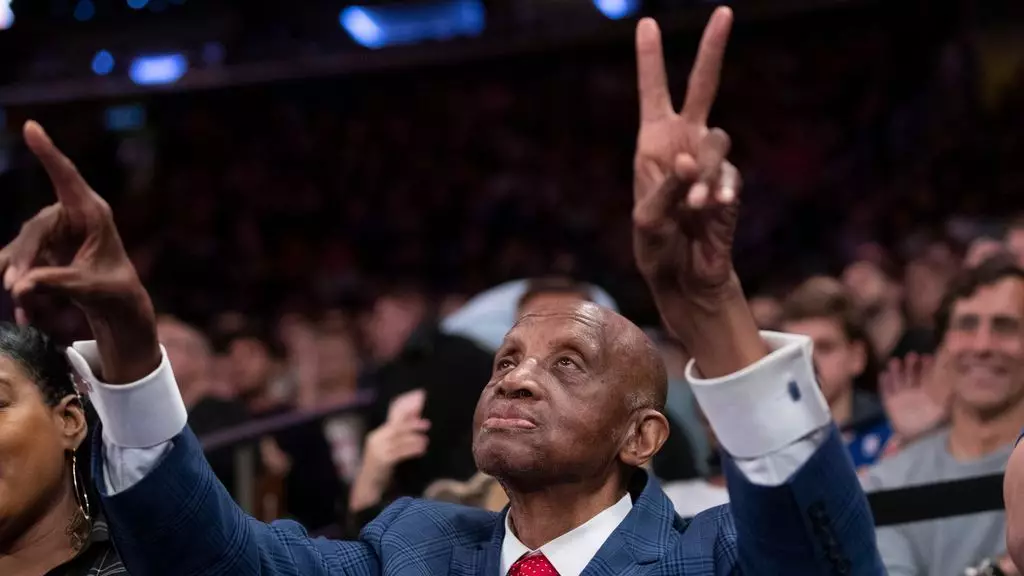The world of basketball mourns the passing of Dick Barnett, a revered figure whose contributions to the sport resonate far beyond the hardwood. At 88, Barnett’s departure marks the end of an era for many fans of the New York Knicks, a franchise that he helped elevate to championship glory. His death, announced by the Knicks organization, leaves an indelible void that echoes within the hearts of basketball enthusiasts. While the specific details surrounding his passing remain private, the impact of his life story is anything but.
Cultural Significance and Legacy
Barnett’s journey began in Gary, Indiana, where he transformed into a sporting icon while attending Tennessee A&I, a historically black college. He wasn’t just another player; Barnett was a pivotal catalyst on a collegiate team that became one of basketball’s pioneering dynasties. Winning three consecutive NAIA championships from 1957, he was a standout performer, earning All-American honors and capturing the tournament’s MVP title twice. This legacy of excellence showcased his profound skill set and served as an inspiration for future generations, particularly athletes from underrepresented colleges.
His transition to the NBA saw him join the Syracuse Nationals as the fifth overall pick in 1959, before later playing for the legendary Los Angeles Lakers. However, it was with the Knicks that his career truly flourished. Playing alongside greats, Barnett became synonymous with New York basketball, contributing to the team’s championships in 1970 and 1973. The narrative of his career is not just about personal success but also about the bridge he created between the cultural diversity of his college roots and the vibrant New York sports scene.
Hall of Fame Recognition
In the landscape of basketball’s history, Barnett’s name carries significant weight, especially as he was inducted into the Naismith Memorial Basketball Hall of Fame, not only for his remarkable professional career but also as a member of his groundbreaking college team. The recognition for the Tennessee A&I Tigers in 2019 was a long-overdue acknowledgement of their contribution to the sport, an achievement that Barnett tirelessly championed throughout his life.
Moreover, the honor was not merely ceremonial but carried forward into real-world impact as the team had the opportunity to visit the White House and engage with Vice President Kamala Harris—a testament to Barnett’s enduring spirit and continued relevance in social narratives.
Embodying the Knicks Spirit
Barnett’s influence extended beyond stats and accolades; he became a beloved figure among fans, a role model who exemplified the spirit of New York basketball. As noted by the Knicks organization, his legacy is characterized by the positive relationships he forged and the respect he garnered both on and off the court. His jersey, now etched in the rafters of Madison Square Garden, serves as a reminder of the greatness he embodied—a legacy that will be celebrated by Knicks fans for generations.
In reflecting on his life, one comes to appreciate that Barnett was more than just an athlete; he was a beacon of hope and a dialogue starter about race, talent, and opportunity in sports. His legacy is one that not only shapes the history of basketball but also echoes broader social changes. His journey from a champion at Tennessee A&I to an NBA Hall of Famer encapsulates an aspirational narrative that continues to inspire young athletes, particularly those seeking their own pathways to greatness against the odds.

